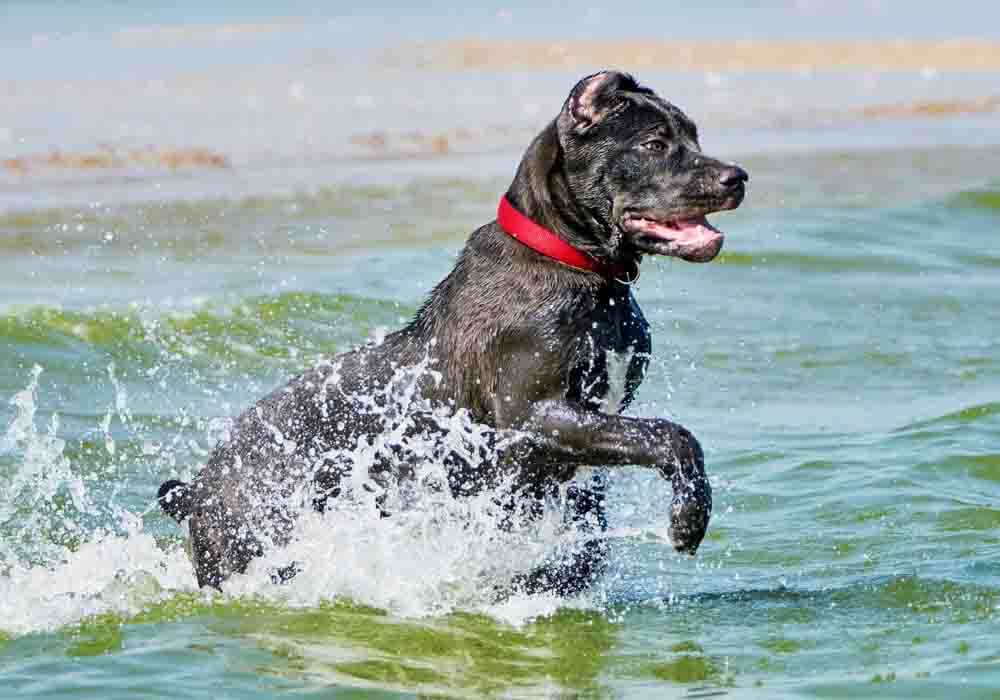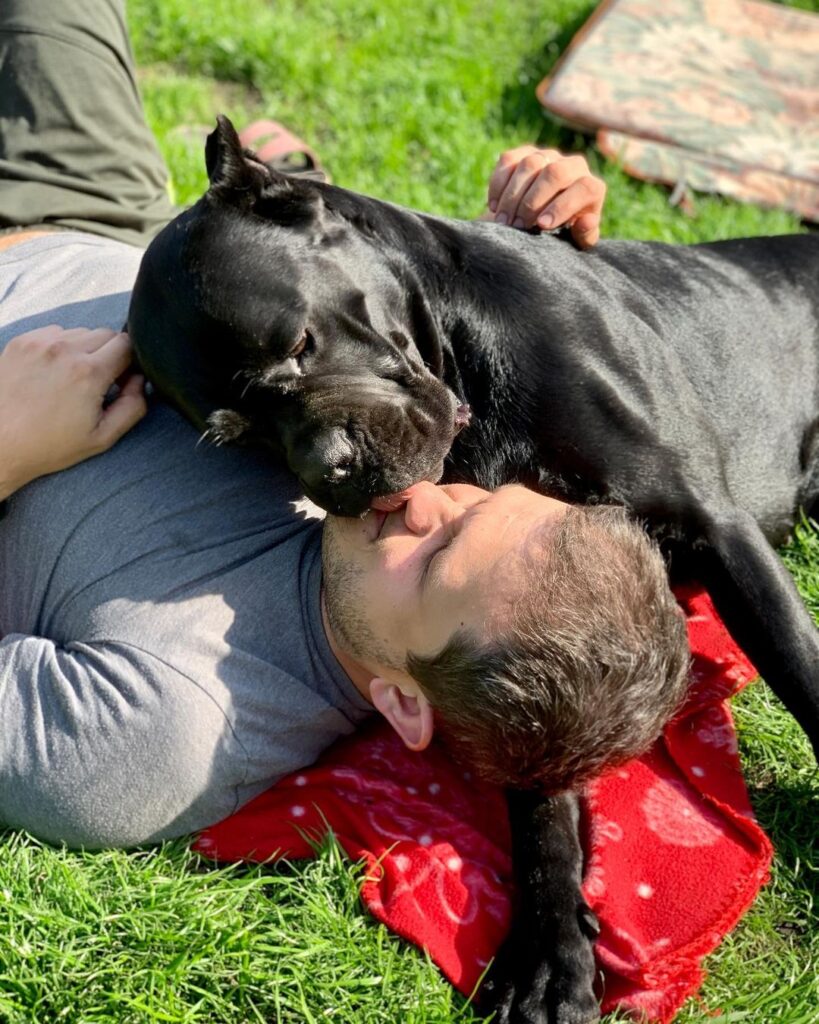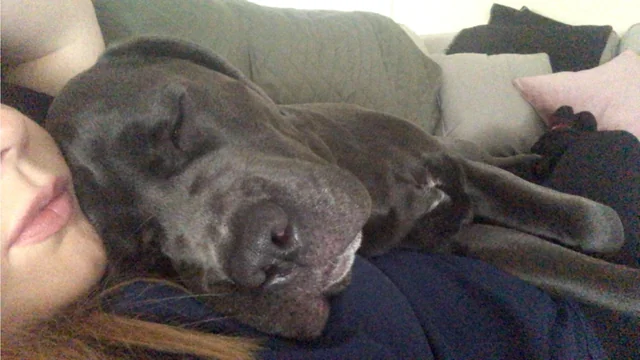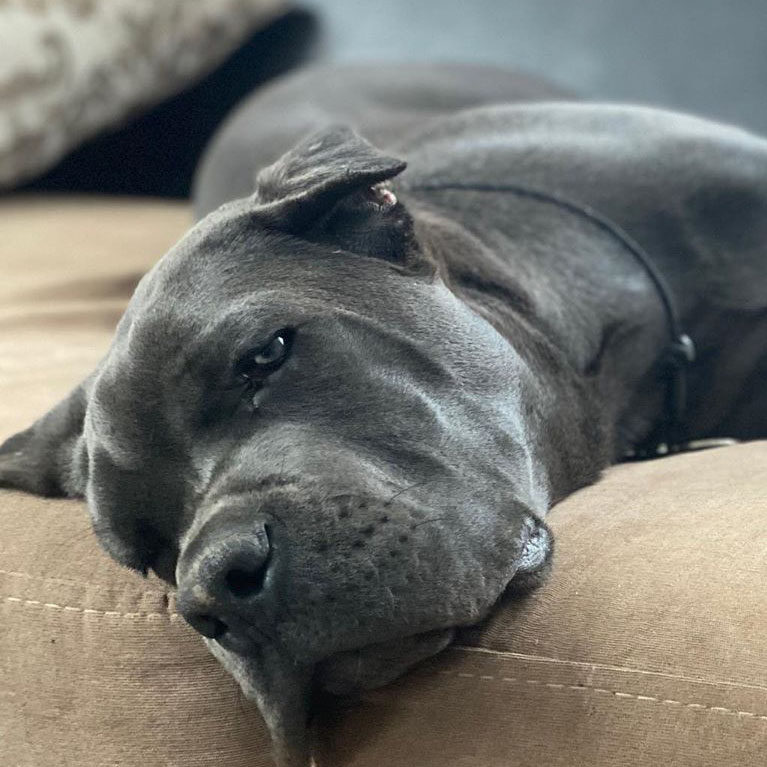
Cane Corsos, renowned for their majestic presence and protective nature, often spark curiosity about their activity levels and overall behavior. While the perception of laziness might arise due to their composed demeanor, it’s crucial to delve deeper into their characteristics to understand their true nature. “Are Cane Corsos Lazy”
These dogs are not inherently lazy, but rather possess a balanced energy level that aligns with their guardian instincts. Cane Corsos exhibit varying levels of activity depending on factors like age, health, and environmental conditions. This balance ensures they are always ready to respond when their protective instincts are triggered.
When Do Cane Corsos Become Protective?
Early Signs of Protective Behavior
Cane Corsos begin displaying subtle signs of protectiveness at an early age. This may manifest as heightened alertness and wariness around unfamiliar people or situations. Recognizing and acknowledging these initial cues can aid in understanding when their protective instincts start to develop.
Socialization and Training Impact on Protection
Proper socialization and training are pivotal in shaping a Cane Corso’s protective behavior. By exposing them to diverse experiences and interactions from puppyhood, they learn to differentiate between normal encounters and genuine threats.
Balancing Protection and Sociability
Striking a balance between protection and sociability is vital. Early and ongoing socialization allows Cane Corsos to become well-rounded individuals capable of distinguishing between friendly and potentially harmful circumstances.
Cane Corso Behavior Stages
Puppy Behavior Characteristics
Cane Corso puppies are inherently curious and full of playful energy. During this developmental stage, instilling fundamental training and positive interactions helps set the tone for their behavior in later life.
Adolescent Cane Corso Behavior
As they transition into adolescence, Cane Corsos may exhibit a more assertive nature as they explore their boundaries. Consistency in training and patient guidance are essential to navigate this phase successfully.
Adult Cane Corso Behavior
Upon reaching adulthood, Cane Corsos often display a mature and loyal demeanor. Their deep loyalty to their families makes them not only excellent guardians but also loving companions.
Senior Cane Corso Behavior
In their senior years, Cane Corsos tend to mellow out, prioritizing relaxation over high activity. Being attuned to their changing needs and adjusting their routine ensures they enjoy a comfortable and contented life.
Should I Let My Cane Corso Sleep With Me?
Benefits of Allowing Sleeping Arrangements
Sharing sleeping quarters with your Cane Corso can foster a stronger bond and sense of security between you two. The emotional connection forged during these moments contributes to their well-being.
Potential Disruptions and Boundaries
While the idea of co-sleeping is endearing, it’s vital to set boundaries. If sharing a bed interferes with your sleep quality or triggers behavioral issues, considering a separate sleeping space might be wise.
Creating a Comfortable Sleeping Space
Whether sharing your bed or not, ensuring a cozy, quiet sleeping environment for your Cane Corso is essential. This promotes quality sleep, vital for their overall health and demeanor.
How Long Do Cane Corsos Sleep?
Typical Sleep Duration
Cane Corsos, akin to all canines, require a substantial amount of sleep. On average, they snooze for approximately 12 to 14 hours per day. This extended rest period enables their bodies and minds to rejuvenate fully.
Factors Affecting Sleep Patterns
Factors such as age, daily activity level, and health influence the amount of sleep Cane Corsos need. Puppies and seniors tend to need more sleep, while young adults may allocate more time for daytime exploration.
Monitoring Your Cane Corso’s Sleep
Keeping a watchful eye on your Cane Corso’s sleep patterns provides insight into their well-being. Drastic shifts in sleep habits warrant veterinary attention to ensure their health remains optimal.
Understanding Cane Corsos’ Daily Activity Levels
Cane Corsos, despite their imposing stature, are not inherently lazy dogs. Their energy levels are intricately linked to their dual role as protectors and companions. Regular exercise is essential to prevent boredom and ensure their well-being. Engaging them in activities like brisk walks, interactive play, and mental stimulation games not only exhaust their physical energy but also satisfy their intelligent minds.
The Role of Genetics and Individual Variability
Genetics play a role in determining a Cane Corso’s temperament and activity level. While some individuals may exhibit a more laid-back disposition, others might display higher energy levels. Understanding your specific dog’s genetic background can aid in tailoring an appropriate exercise routine and lifestyle that suits their needs.
Incorporating Mental Stimulation
Cane Corsos thrive when mentally stimulated. Engaging their minds through puzzle toys, obedience training, and scent work can alleviate any tendencies towards laziness. Mental enrichment not only keeps them alert and active but also enhances their problem-solving abilities and overall contentment.
Guidelines for Optimal Exercise Routine
Maintaining a consistent exercise routine is pivotal for Cane Corsos. A balanced approach, combining both physical activities and mental challenges, is ideal. Aim for at least 60 to 90 minutes of exercise daily, divided into sessions that cater to their age, health, and energy levels.
Recognizing Signs of Boredom
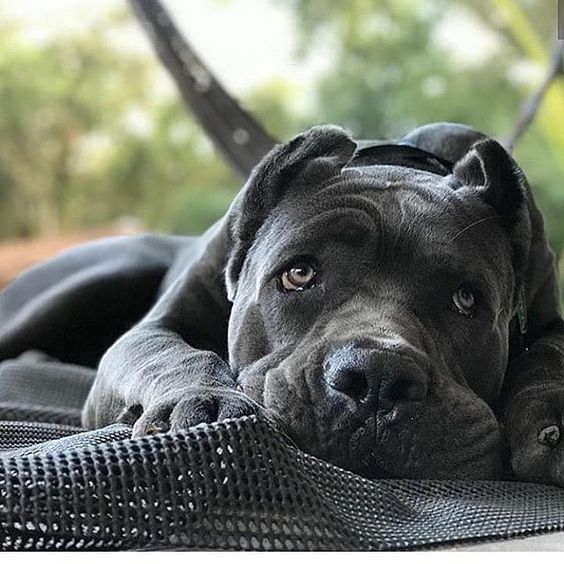
Boredom can contribute to a perceived sense of laziness in Cane Corsos. If left unaddressed, it might lead to undesirable behaviors such as excessive chewing or digging. Being attuned to signs of restlessness or frustration and proactively engaging your dog can prevent such issues.
Balancing Rest and Activity
Cane Corsos’ activity levels are complemented by their need for quality rest. Adequate sleep is crucial for their physical recovery and mental well-being. Creating a comfortable sleeping space in a quiet, peaceful environment supports their relaxation, ultimately contributing to a healthier and more active demeanor when awake.
Individualizing Care for Senior Cane Corsos
As Cane Corsos age, their activity levels might naturally decrease. While they may appear lazier, it’s essential to adjust their routine to accommodate their changing needs. Gentle exercise, joint health supplements, and regular veterinary check-ups ensure their senior years are comfortable and fulfilling.
In the realm of Cane Corsos, laziness is a subjective concept that can be mitigated through proper care, understanding, and engagement. These magnificent dogs thrive on an active and enriching lifestyle that aligns with their protective nature and innate curiosity. Balancing their energy levels, mental stimulation, and rest contributes to their overall well-being, turning them into steadfast companions ready to embrace each day with vitality.
FAQs
1: Are Cane Corsos generally lazy dogs?
Cane Corsos are not inherently lazy, but their energy levels can vary. They require regular exercise to stay healthy and mentally engaged.
2: Do Cane Corsos make good guard dogs?
Yes, Cane Corsos have a strong protective instinct and can make excellent guard dogs when properly trained and socialized.
3: How much exercise do Cane Corsos need daily?
Cane Corsos need around 60 to 90 minutes of exercise every day to prevent boredom and promote their overall well-being.
4: Are Cane Corsos good for apartment living?
While Cane Corsos can adapt to apartment living, their large size and need for exercise make them better suited for homes with a yard.
5: Do Cane Corsos get along with other pets?
Early socialization is key. Cane Corsos can coexist with other pets if introduced properly and trained to behave appropriately.
6: Are Cane Corsos low-maintenance in terms of grooming?
Yes, Cane Corsos have short coats and are relatively low-maintenance in terms of grooming. Regular brushing is usually sufficient.
7: At what age do Cane Corsos start showing protective behavior?
Cane Corsos often start displaying protective behaviors around 1 to 2 years of age as they become more confident and mature.
8: Can I train a Cane Corso to be less protective?
Yes, through proper training and socialization, you can help your Cane Corso strike a balance between being protective and being friendly.
9: Do Cane Corsos suffer from separation anxiety?
Yes, Cane Corsos can experience separation anxiety if not accustomed to being alone. Gradual training can help alleviate this.
10: How should I handle my Cane Corso’s sleep schedule?
Establish a consistent sleep routine for your Cane Corso. Provide a comfortable and quiet sleeping area to ensure they get the sleep they need.
Conclusion
In conclusion, understanding the behavior and activity levels of Cane Corsos is essential for providing them with a fulfilling and balanced life. From their protective instincts to their sleep patterns, these aspects contribute to the overall happiness and well-being of these remarkable dogs.
With over 4 years of devoted companionship with my beloved Labrador Retriever, Robin, I have cultivated a deep understanding and expertise in all things canine. From training and behavior to health and well-being.

